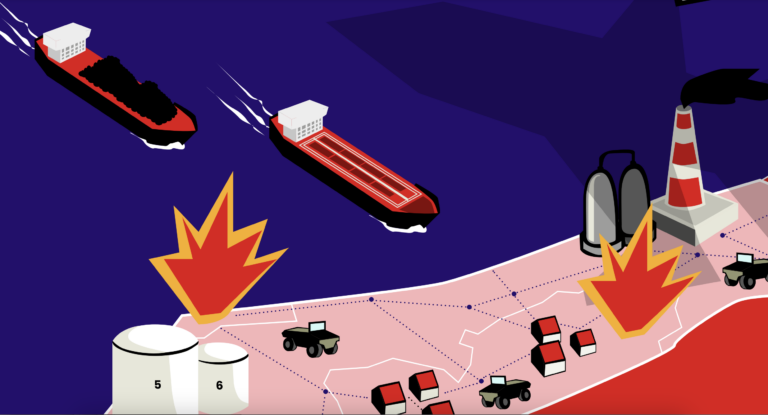
Weak Commission action plan on corporate taxation
By Markus Henn, WEED
In its struggle to better tax multinational corporations, the European Commission (EC) has presented a new action plan. The plan revives a former law proposal for a European corporate tax system, though this has been stalled in the Council over the past few years. In terms of transparency of tax payments by corporations, the EC only starts a consultation. A proposed blacklist of tax havens is dishonest, as it excludes the EU’s own havens. Meanwhile, the European Parliament has an investigative committee on tax avoidance up and running while the G20/OECD “base erosion and profit shifting” project is also trying to deal with the issue. However, both are at risk of failure.
The European Commission released a new action plan on fairer and more transparent corporate taxation on 17 June 2015. It mainly aims to revive an earlier Commission proposal from 2011 for a comprehensive European system of corporate taxation, entitled a “Common Consolidated Corporate Tax Base” (CCCTB). This system would not only provide a common tax base in all EU countries, i.e. rules on how to calculate taxable corporate profit, it would also distribute the profit made in the entire EU in a totally new kind of way. The profits would be allocated in accordance with certain factors such as turnover or staff in each country in which the company is active – a system called unitary taxation. In comparison to its 2011 proposal, the Commission now wants to make the CCCTB compulsory. The positive aspect here is that it would prevent corporations from being able to choose areas with the lowest level of taxation.
However, there are still flaws in the proposal. For example, the Commission wants to increase the weight of expenses for research and development in the allocation key, even though this is a means of shifting profits. Furthermore, they propose introducing a calculation of losses (“loss consolidation”) for the entire EU, even without a full CCCTB. The consolidation would mean that corporations can deduct losses in one EU country from the profits in another, allowing them a new way of decreasing their taxes. Finally, there is no minimum tax rate envisaged. However, without one, the CCCTB would probably trigger a new wave of tax competition by governments lowering tax rates. Therefore, as has also been demanded by the European Parliament, a common minimum tax rate is needed, e.g. 25%.
Another element of the action plan is a new blacklist with 30 tax havens. With it, the Commission passes the buck on fighting tax avoidance to third countries and jurisdictions like Andorra, Bahamas, Guernsey and Liberia while European countries are noticeably absent. This completely ignores the role of countries such as the Netherlands and Luxembourg. Moreover, it disregards the scandal surrounding the dubious tax practices of Luxembourg, exposed through the “Luxleaks” involving then Finance and Prime Minister Jean-Claude Juncker. This was one important reason for placing the topic of tax evasion so high on the Commission’s agenda.
Finally, the Commission wants to improve transparency concerning corporate taxation, though it merely announced a public online consultation on this issue, which is open until 9 September. The aim of the Commission is to evaluate the impact of tax transparency on business, even though the evaluation of the bank transparency regulation (that already covered annual reports for the year 2014) expected no significant negative economic impact and even “some limited positive impact”. The Commission’s consultation and the long wait for its results, although the advantages are obvious, can only be interpreted as stalling tactics.
Parliament’s investigation slowed down
A new TAXE Special Committee at the European Parliament has started six months’ work to investigate tax avoidance and tax evasion in the EU, following the Luxembourg Leaks scandal last year (see December 2014 Newsletter). The Committee had its first meetings and travelled to six supposed EU tax havens, showing a real commitment to making the Committee a success. However, some MEPs such as liberal Michael Theurer complained that the Committee’s work has been slowed down by a lack of cooperation. For example, when it recently asked corporate representatives to hearings, only one out of 15 replied positively.
G20/OECD work might make things worse Meanwhile, the OECD and G20 working groups are still dealing with the “base erosion and profit shifting” (BEPS) action plan (for background, see the December 2014 Newsletter and the BEPS Monitoring Group) and have produced many new draft documents on the 15 action points over the last months. It is not clear yet how many new rules will come out of the BEPS project, as many proposals are rather vague or even go in the wrong direction. Therefore NGOs are concerned that the proposal package “could make an already bad situation worse.
The criticism includes:
- Only minor improvements are being proposed on some important issues, e.g. regarding countermeasures against letterbox companies or the definition of a “permanent establishment”, which is the precondition to tax an entity in a country.
- The whole project still relies on the old transfer pricing system, in which all parts of a multinational corporation are looked at separately. This does not acknowledge that they are in fact integrated firms under central direction which should be taxed in this way.
- There are plans to introduce an arbitration mechanism which might give corporations rights against the tax authorities that would be too strong, as the latter can be challenged in court by prosperous corporations.
- The proposed, well-designed, country-bycountry reporting on important business and tax figures will not be made public and will have a threshold of 750 million euros turnover.
But there is also the question as to whether the OECD and G20 states will ultimately agree on a package in the end. While there is a plan for a multilateral treaty to replace the estimated 3,000 bilateral tax treaties, there is mounting evidence that obtaining a compromise amongst the OECD and G20 states on the various action points will be difficult. For example, Robert Stack, U.S. Treasury Deputy Assistant Secretary for International Tax Affairs recently complained, “Rather than fundamental reform, we got a lot of tinkering around the edges of old rules, and vague and subjective rules, which will empower tax administrators to make out-sized assessments against foreign investors when they think it is in their interest to do so.” This is a worrisome comment, given that U.S. companies such as Walmart particularly use EU tax havens. If both the United States and the EU are not willing to accept their responsibility
Do you need more information?
-

Myriam Vander Stichele
Senior Researcher
Partners
Related news
-
 The hidden human costs linked to global supply chains in ChinaPosted in category:News
The hidden human costs linked to global supply chains in ChinaPosted in category:News Joshua RosenzweigPublished on:
Joshua RosenzweigPublished on: -
 The power to extract value from the value chainPosted in category:Long read
The power to extract value from the value chainPosted in category:Long read Rodrigo FernandezPublished on:
Rodrigo FernandezPublished on: -
Powering injustice Published on:
 Lydia de LeeuwPosted in category:Publication
Lydia de LeeuwPosted in category:Publication Lydia de Leeuw
Lydia de Leeuw

